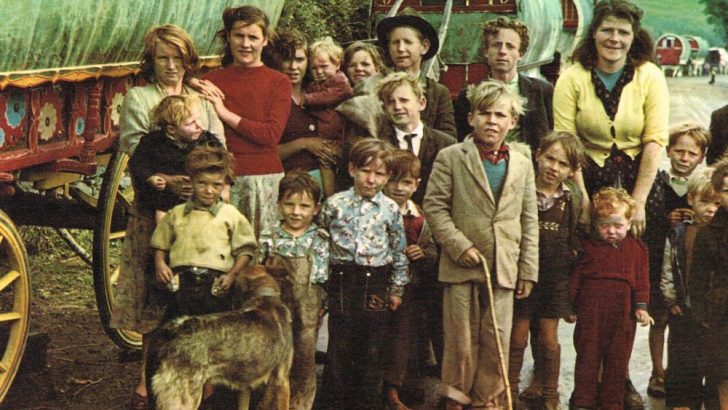The World of Books by the books editor
During the Presidential election a native minority found themselves the focus of unwelcome attention. I was surprised at quite how confused many people, city dwellers for the most part, were about the social group now usually called ‘Travellers’.
I find this a difficult word. The corollary of traveller is settled – which places the matter in a particular social context. The older word ‘itinerant’, used to describe a person of ‘no settled abode’, smacked of authoritarian distaste. It replaced the older style of ‘Tinker’, which was simply a description of a trade, and should have been no more abusive than ‘Smith’ or ‘MacGowan’.
Another term was ‘the people of the waggons’. I picked this up from the Ulster poet W. R. Rogers (a dozen years minister at Loughgall) in a piece he wrote in 1950.
The people then known as tinkers and gypsies have long been admired by poets, writers and painters, such as George Borrow, John Buchan, Patricia Lynch, Bryan McMahon, Jack Yeats, Augustus John and by scholars such as Charles Leland, John Sampson, Dora Yates and R. A. S. Macalister (whose 1937 book The Secret Languages of Ireland is a classic).
They must have some special undeniable qualities to attract and hold the imagination of such people.
But then the nomad has always been envied by those tied to their 30 acres, their work bench, their office desk or shop counter.
Farmers
It was often argued that ‘the people of the waggons’ were tenant famers cast out on the roads during the turmoil of the 17th Century, but this was belied by the distinctive features of the tinkers. Recent genetic research suggests a far older origin, that they have been a distinct Irish group for a millennium.
But actually it must be much longer. As the term ‘tinker’ indicated they were originally nomadic metal workers. When the use of metals began, perhaps 9,000 years ago, it was a mysterious skill. Metal worker were akin to magicians in the eyes of the community – they still were in Celtic times. The smith, like the poet, was a man of special and respected craft.
In the last centuries they worked as tinsmiths. It is not often realised that one cannot cook in copper pots. They have to be ‘tinned’ inside to make them safe, and this coating has to be renewed regularly. This was a special trade, which, along with horse copping, and later scrap-metal collecting, gave the ‘people of the waggons’ a place in Irish rural society. They met real needs.
Rogers was writing about the waggon-families at Puck fair (see picture). “The Irishman has always (like a walking stick) leafy visions of settling down and taking roots. But his dearest wish is to be ‘on the move’, or ‘on the run’. Which, no doubt, is why he is mighty tolerant of the travelling people, of the gypsy and the tinker.
“They are curiously gentle, reserved, people, yet – among themselves – they are fierce fighters…and, since they harm no one but themselves, and are a shockingly good example to everyone, the law turns a blind and fond eye to their nice idiosyncrasies… and let me say their caravans are as shining and neat as new pins.”
But things began to change in the 1960s. As rural Ireland died on its feet and Ireland began a totally urban culture, there was none of the old patience with the travellers. They became ‘objects of concern’ rather than fellow citizens.
Yet the ‘waggon people’ were the pioneers of recycling before it became a fashionable middle-class concern. The authorities wanted them to ‘settle’, ‘to send their children to school’, but these efforts have not answered to what is basically a matter of respect.
Yet nomadism is not quite dead. Around the world efforts are being made to preserve and continue forms of nomadic life.
Moreover some of the most important creative talents in the world today are nomadic, bright people who move readily from place to place, unsettled of course, but married to their special skill.
Perhaps we need to wean the waggon-folk away from feuds and tarmacadam frauds, and let them develop an involvement in high-tech for the future.


 Peter Costello
Peter Costello A waggon family on their way to Puck Fair in the early 1950s.
A waggon family on their way to Puck Fair in the early 1950s. 